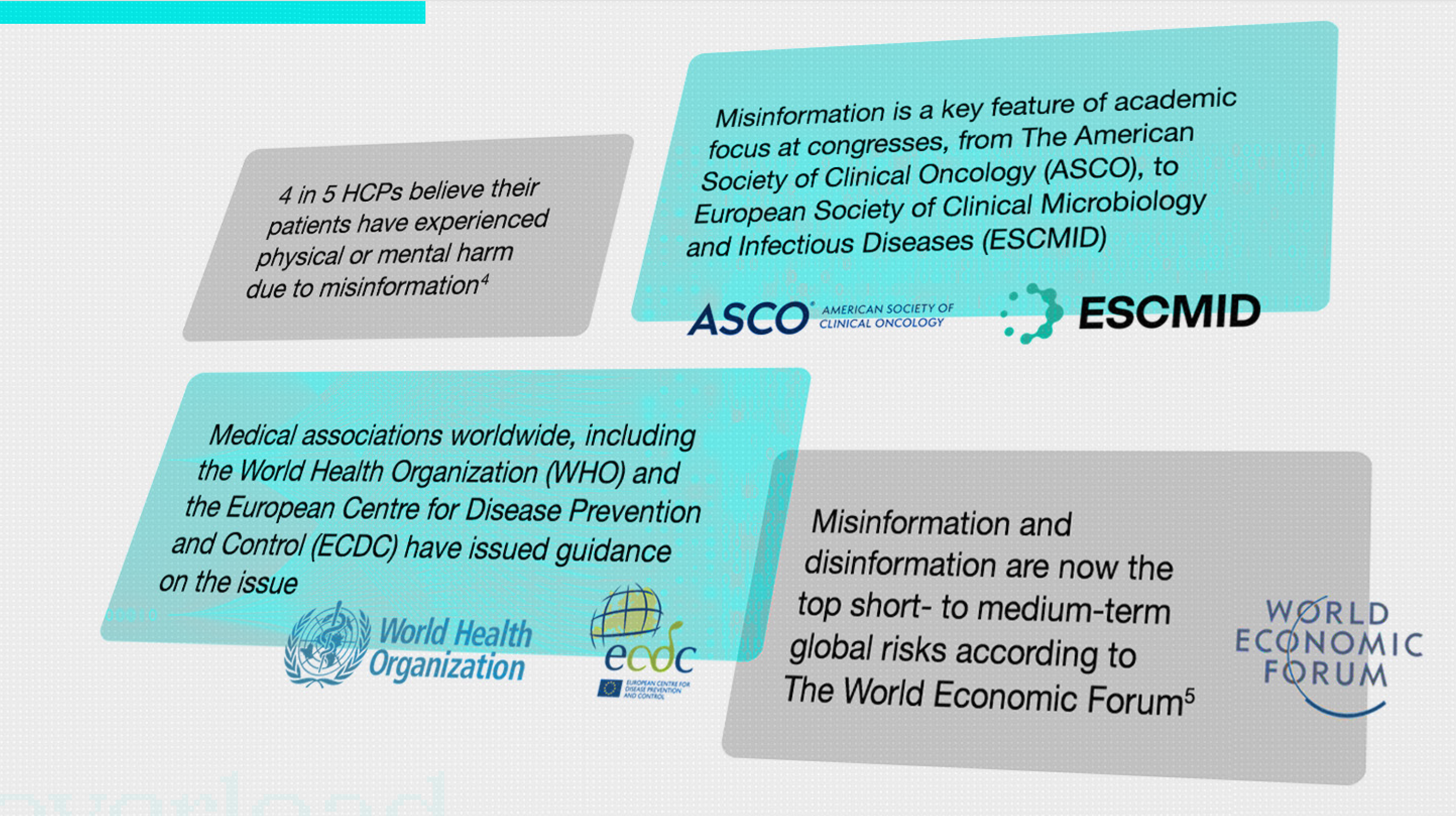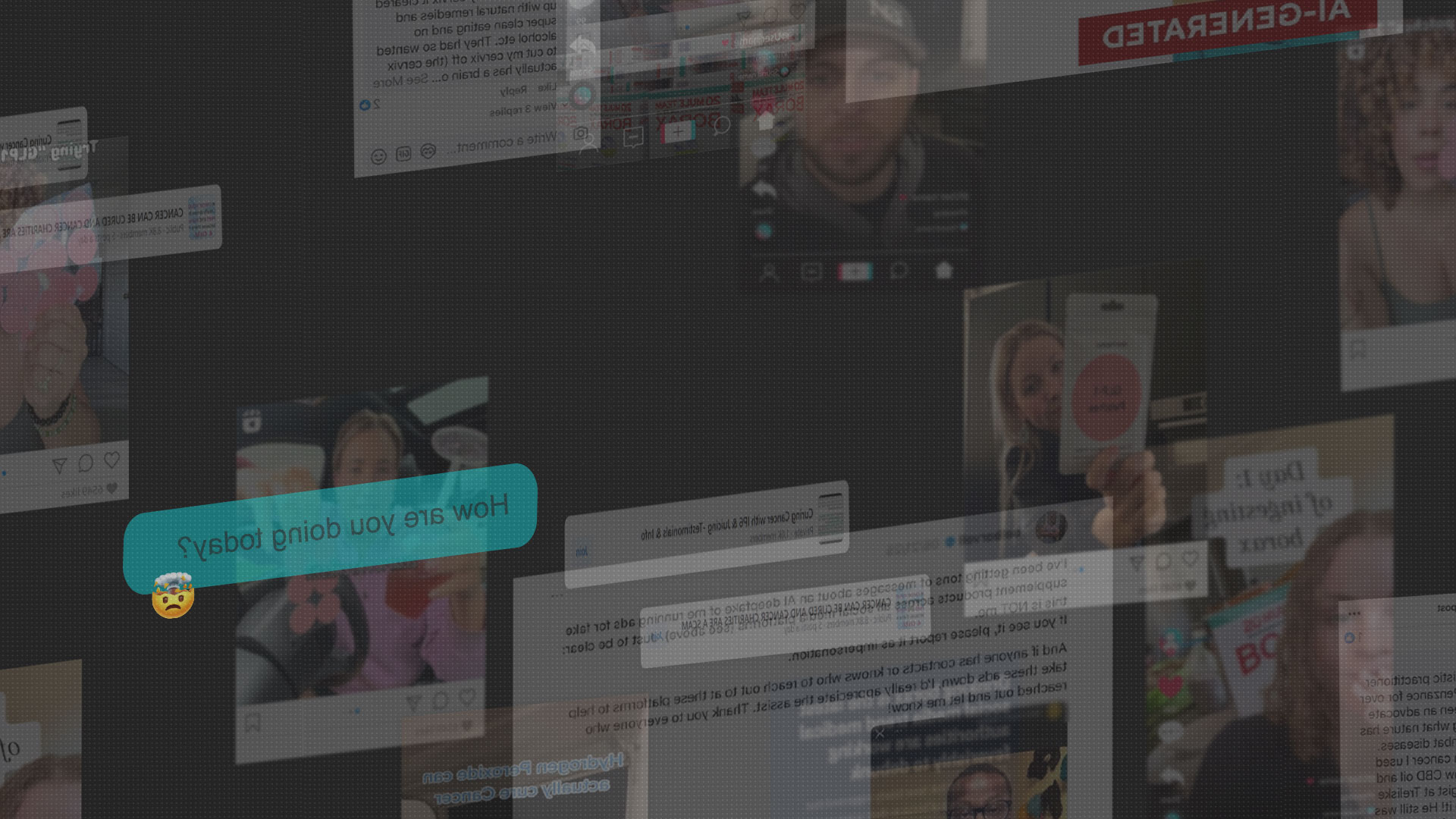30th October 2025
BlogIn this year’s Havas Lynx White Paper, Doctored Truths, we’re deep diving in to health misinformation.
Healthcare systems around the world are buckling under unprecedented strain. Rising patient numbers, spiralling financial pressure, and waves of burnout spread through our healthcare professionals (HCPs), triggering the fastest deterioration in HCP wellbeing in recorded history (particularly among millennial and Gen Z clinicians).1
The traditional model of care has been dismantled by relentless time constraints. In its place, a new paradigm emerged: one where patients are no longer passive recipients but active participants in their own care. Patient empowerment has become the backbone of modern healthcare, born out of both necessity and favour.2
At its best, this shift towards patients taking an active role in their health is transformative. Empowered patients are more engaged, more proactive and tend to have better health outcomes as a result. They adhere better to treatment plans, recognize symptoms earlier, and seek timely medical attention which can, in turn, help to reduce the overall cost of their care. Technology has been a powerful enabler of this movement, connecting patients across geographies, democratising access to information, and giving voice to those navigating complex or rare conditions.2,3
But increased connectivity and the ability for anyone, anywhere, to share health opinions, has become a double-edged sword. The same digital platforms that connect and inform can also mislead. The internet is awash with health information – some of it credible, much of it not. Patients, now more autonomous than ever but with shrinking contact time with medical professionals, are left to navigate a minefield of conflicting claims, faceless advice, viral trends, and persuasive influencers, many of whom lack medical expertise or operate with ulterior motives.
What happens when empowerment turns into confusion? When misinformation delays treatment, encourages harmful practices, or erodes trust in evidence-based medicine? These are no longer hypothetical questions.

The pharmaceutical industry is disproportionately affected by the widespread dissemination of health misinformation – from anti-vax fears to patients opting for unproven alternatives over evidence-based treatments – the industry feels the full force of its impact both ethically and commercially. The rise in misinformation compounds the long-standing distrust of the pharmaceutical industry too – fewer than one in five millennial HCPs trust branded pharma product websites, and only a third of US patients trust direct-to-consumer (DTC) advertising.4,6
Tackling health misinformation is an opportunity for pharma to deliver on its ethos of improving patients’ lives, rebuilding the trust and credibility among society that is essential to its future success.
Head to the Doctored Truths Report to continue reading and find out more.
Sources
- Havas Lynx. Healing the Healers. Available at: https://issuu.com/havaslynx/docs/whitepaper_design_master_v0.6_single_pages?fr=sZjQ2YzMyMzg2OQ. Accessed September 2025.
- Marzban S et al. J Patient Exp 2022; 9: 23743735221125439.
- Mesko B et al. J Med Internet Res 2025; 27: e60562.
- Point.1 – proprietary data platform. Data on file.
- World Economic Forum. The Global Risks Report 2025. Available at: https://reports.weforum.org/docs/WEF_Global_Risks_Report_2025.pdf
- Deep Intent. Beyond the prescription. Available at: https://ipg-wp-media-mgl-glb.s3.us-east-2.amazonaws.com/magna/wp-content/uploads/2024/10/27161109/MAGNA-DeepIntent-Beyond-the-Prescription.pdf. Accessed: September 2025.
